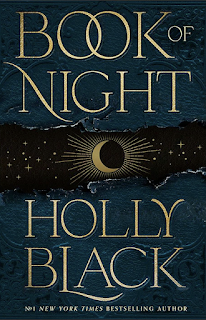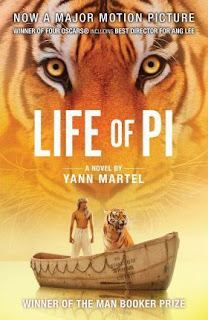On 1 March, I asked the question, "What Makes A Hero?" and looked at "the Call", the first of three C's that inform my thinking on the subject.
 |
What makes a hero? (Valkyrie in Thor: Ragnarok)
|
Last month, on 1 April, I checked out C number two: Circumstance.
This month, it's time for Commitment. (I know, I know, you got that from the title already, but hey -- unfolding logic and everything in its proper order, ok? OK!)
 |
Moments of Decision (Alina: Shadow & Bone series)
|
The call, circumstance, and commitment, are not standalone elements: they work together to make the hero. For example, circumstance shapes the call and (not infrequently) compels the protagonist (willingly or unwillingly) to pick up the hero's guerdon, i.e. the moment of commitment from which the ensuing story unfolds.
One of the most famous instances of commitment in Fantasy is when Frodo volunteers to take the One Ring to Mordor:
'Frodo glanced at all the faces, but they were not turned to him ... A great dread fell on him, as if he was awaiting the pronouncement of some doom that he had long foreseen and vainly hoped might after all never be spoken. An overwhelming longing to rest and remain at peace ... in Rivendell filled all his heart. At last with an effort he spoke, and wondered to hear his own words, as if some other will was using his small voice. "I will take the Ring," he said, "though I do not know the way." '
 |
Frodo & the one ring
|
I have also always loved the significance of the moment when Ged, in Ursula Le Guin's A Wizard of Earthsea, commits to resolving the problem he has unleashed upon himself and his world:
"If I turn," Ged said, after some time had gone by, "if as you say, I hunt the hunter, I think the hunt will not be long. All its desire is to meet me face to face. And twice it has done so, and twice defeated me...Yet if I run again, it will surely find me again. And all my strength is spent in the running." ...
In the cold dawn when Ogion woke, Ged was gone. Only he had left in wizardly fashion a message of silver-scrawled runes on the hearthstone, that faded even as Ogion read them: "Master, I go hunting."
These are among the great moments of commitment and drawn from two of Fantasy's classic works, but the same moment will come in almost every (if not all -- but not having read them all, I can't speak in absolute terms ;-) ) fantasy tales.
Another of my favorites from the classic is when Morgon, in The Riddlemaster of Hed, realizes he can no longer remain what he has always been but must, extremely reluctantly, pursue an unknown destiny:
"He sat up on the bed, knowing now what bothered him ... He had a choice, for the moment: to return to Hed, live quietly...waiting for the day when the storm brewing, growing on the coasts and mainland would unleash its full fury---that day, he knew, would come soon. Or to set his mind to a riddle-game he had no hope of winning...He woke again at dawn...saddled his horse, left Hlurle without looking back, heading north...to ask the King of Osterland a riddle."
Interestingly, the moment of commitment does not always occur early in the story. Although relatively early for Frodo in The Lord of the Rings (necessarily, because the subsequent quest-journey is the story), Ged's realization comes over halfway through A Wizard of Earthsea. Similarly, Morgon's irrevocable turning point comes two-thirds of the way through The Riddlemaster of Hed.
As with The Lord of the Rings, the timing of the commitment reflects the story being told. Ged's story is about hubris and restitution, with the former having to be well established to set up the latter. Morgon's path is about transformation from the person he has always been, driven by a duty to himself and his world -- but the realization of what that means has to evolve.
Several of the other heroes mentioned under the Call and Commitment reflect a similar pattern. Arguably, in SA Chakraborty's Daevabad trilogy, Nahri's moment of commitment comes at the conclusion of the book. As mentioned in the first post, she has an anti-hero (trickster) aspect and the circumstances only reach her personal point of no-return at the end of City of Brass.
Oree Shoth's moment of commitment, in NK Jemison's The Broken Kingdoms, also comes late. Interestingly, though, I would argue that Yeine Darr's commitment, in The Hundred Thousand Kingdoms, is made when she leaves home to journey to the capital city and palace of Sky, i.e. before the story begins, although some material is later recalled/told in retrospect. Everything else that happens flows from the decision already taken.
The subsequent flow of action and consequences, including successive pledges and/or decisions, is why commitment is integral in the making of a hero. Once the decision to act is taken, there can be no turning back: the only options are failure, whether in the form of death or flight, or winning through to success, even if that may also result in death or a transformation so profound it involves significant loss.
In Frodo's case for example, although he succeeds in his quest to destroy the one ring, the cost of carrying it is so great it undermines his physical and emotional health. So much so that his only hope of true recovery is to leave Middle Earth and those he loves altogether -- a leavetaking akin to death.
Sometimes, of course, the story is about the protagonist choosing to give up and run away, either physically or morally, or both since the two are frequently entwined, before being obliged (by circumstance) to recommit. This is Waylander's story (in the David Gemmell novel of the same name), and also Shoka's in CJ Cherryh's Paladin, and that of Kaladin in Brandon Sanderson's The Way of Kings.
Yet whether made soon or late, before the story begins or after the protagonist has sought to abandon the quest, and whether the protagonist is willing or reluctant at the time, commitment is a key element in what makes a hero.
© Helen Lowe
~*~
Previous Posts:
January: Looking Forward To An Heroic 2022
March: What Makes A Hero -- and The Call
April: What Makes A Hero #2: Circumstance
~*~
About The Author:
Helen Lowe is an award-winning novelist, poet, and lover of story. With
four books published to date, she is currently completing the final instalment in The Wall Of Night series.
Helen posts regularly on her “…on Anything, Really” blog, monthly on the
Supernatural Underground, and tweets @helenl0we.

















